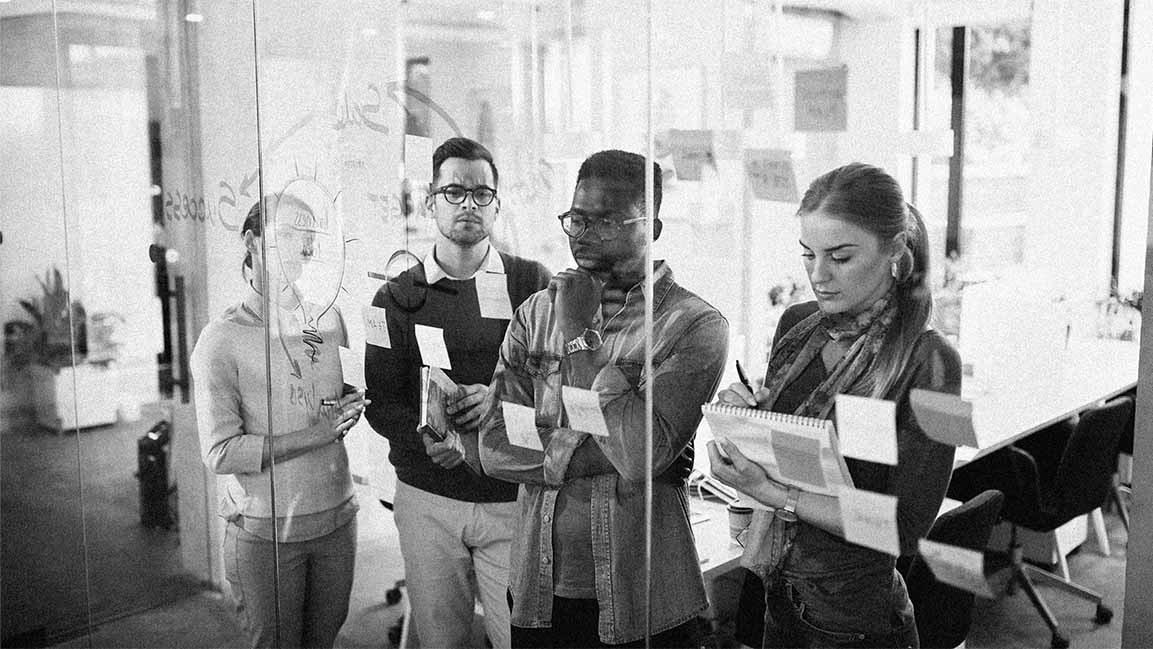- | 8:00 am
What everyone gets wrong about risk
The cofounder of Rubrik explains that risk isn’t really about the risk itself, but about the ability to live with uncertainty and ambiguity while relentlessly shaping a better future.

I grew up in a very small town in India, in a house with no running water or bathroom.
When I was a teenager, I was a poor student. The safe bet would have been to coast through high school with mediocre grades and, upon graduation, simply eke out a living.
Instead, my father came up with what at first seemed a pie-in-the-sky proposal: Forget about the grades. Instead, devote every waking moment to trying to ace the admission exam for India’s top colleges.
It was a Hail Mary. And it worked. After much trial and tribulation that included initial rejections from the country’s state universities, a letter arrived from the Indian Institute of Technology (IIT), the country’s most competitive and prestigious college system.
Application accepted.
One can draw some obvious lessons from my experience such as the importance of dreaming big, or perseverance, or heeding a father’s wisdom. But the path my father and I chose also colors my view today on an ever-critical business topic: risk.
Aiming for success on the college admission exam despite my apparent lack of academic potential represented a personal risk (one that others in our town found perplexing), but it really wasn’t much different than the big bets that businesses place every day. Risk and commerce have always been inextricably intertwined. After all, just about anything that brings a return—investing, starting a company, launching a new product—is inherently risky.
Experts often tell us that the best kind of risk is calculated risk. Smart entrepreneurs, we are told, are able to process information and determine the probability of success or failure before deciding whether the risk is worth undertaking.
Was my unorthodox course of action in high school a calculated risk?
Not in my mind. I think it was more a bold attempt to achieve a colossal outcome when I had little else to lose. I was pretty much on a dead-end road regardless of whether I stayed in high school or not. I needed to take a transformational risk to change my future.
I’m not a fan of calculated risk, either the term or the practice. To me, it sounds like a half measure rather than shooting for the stars.
Calculated risk also sounds like an oxymoron.
First, if risk truly could be calculated, it wouldn’t be risk. Risk is by nature uncertain, which makes it extraordinarily difficult if not impossible to enumerate, especially in a startup where so many variables about the technology and the market may not be known.
Second, if risk could be calculated, no one would ever take one. Why would any sane person start a company when nine out of 10 fail? Why would I have sought admission to IIT when the acceptance rate is less than 2 percent?
So how should leaders approach risk?
The first step should be to maximize risk, not shying away from it. To create growth in a startup, for instance, the earlier years should be filled with big risks for enormous results. And, yes, that’s true even in times of economic uncertainty. In fact, given the major companies born during downturns (Microsoft, Disney, FedEx, Uber, on and on), maybe it’s more true.
Bold risk is the indispensable ingredient in fueling disruption. A startup is in the business of creating something out of nothing, and, like the young me, it has nothing to lose. And disruption can’t happen without a passion for taking chances.
The question around risk in new endeavors shouldn’t be what or how much but why.
That was our philosophy in the early days of our now-unicorn cybersecurity company, Rubrik. We decided to put 10% of the capital that we raised in every round toward the highest level of risk we could take. For example, when we had only $10 million in capital and our product was not even in beta, we committed $1 million to marketing.
Assuming that our product would come out in one year, we bought booths at global events, created marketing materials for a product that wasn’t even in alpha, and hired a sales team to create demand for the product. In other words, we invested ahead of reality to create growth and momentum.
The payoff in growth seemed well worth whatever risk was involved.
If we had asked too many questions about why these moves were risky, we might never have done them! Obsession with calculated risk can be a self-fulfilling prophecy. It’s a mistake to put the risk cart before the growth horse.
The second step is to gain a deeper understanding of risk factors that create roadblocks to growth and work relentlessly to eliminate them.
Everything the company does from this point on should be about reducing friction to achieving the big growth goals.
Yes, risk will shift as a company matures. At some point, the organization may even become large enough that it must make a mindset shift to protect the assets it has created and can’t continue taking risks in the same proportion. Risks should never be reckless, after all.
But while calculated risk implies that risk is something to be quantified and mitigated, it really should be thought of as something to be understood, so that the factors behind it can be mitigated. Risk isn’t really about the risk itself, but about the ability to live with uncertainty and ambiguity while relentlessly shaping a better future.
As an entrepreneur, I know that if I am getting up every morning and feeling consistent emotions, I’m not doing it right. Running a startup means that some days, I should feel like I’m flying, and on others, I should feel like I’m dying.
Rather than viewing risk as something that can be calculated in isolation, think of risk in a different way: as a group of factors that might need to be addressed but should never become their own reality and stand in the way of aiming high.
It bears remembering that the word risk comes from the early Italian risicare, which means “to dare.” Entrepreneurs and visionary leaders dare. They don’t calculate risk, they embrace it. As T. S. Eliot wrote, “Only those who will risk going too far can possibly find out how far one can go.”








































